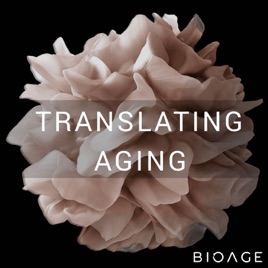
Advertise on podcast: Translating Aging
Rating
5 from
Country
This podcast has
49 episodes
Language
Publisher
Explicit
No
Date created
2021/05/27
Average duration
39 min.
Release period
20 days
Description
On Translating Aging, we talk with the worldwide community of researchers, entrepreneurs, and investors who are moving longevity science from the lab to the clinic. We bring you a commanding view of the entire field, in the words of the people and companies who are moving it forward today. The podcast is sponsored by BioAge labs, a clinical-stage biotechnology company developing therapies to extend human healthspan by targeting the molecular causes of aging.
Podcast episodes
Check latest episodes from Translating Aging podcast
30 Years of Aging Biology: A Pioneer's Perspective (Cynthia Kenyon, VP-Aging Research at Calico Labs)
2023/12/06
30 Years of Aging Biology: A Pioneer’s Perspective (Cynthia Kenyon - VP Aging Biology, Calico Labs)
Dr. Cynthia Kenyon reflects on the evolution of the longevity field over the 30 years since the publication of her groundbreaking paper, “A C. elegans mutant that lives twice as long as wild type,” a genetic analysis of one of the first single-gene mutations to extend lifespan in the worm. She recounts the initial excitement and skepticism around the idea of a pathway that regulates aging, and subsequent validation of this and related ideas in a wide range of model organisms. She also discusses her longstanding belief in the translational potential to improve human healthspan, and her experience as a co-founder of one of the first longevity biotech startups, Elixir Pharmaceuticals, in 1999. Based on her unique historical perspective—and with undiminished enthusiasm—she looks ahead to the unsolved mysteries that will propel the next generation of breakthroughs.
Key ideas:
Origins of looking at aging regulation in C. elegans in the 1990sage-1 and daf-2 as the first aging genesEarly resistance to the idea of studying aging at the molecular levelCloning of genes to reveal conserved longevity pathways (IIS/mTOR)Extending lifespan in invertebrates, and then miceThe connection between stress resistance to evolutionary theoryDr. Kenyon's initial belief in the translatability of aging scienceCo-founding Elixir Pharmaceuticals in 1999 to target agingCurrent optimism about interventions against agingNeed for public funding of large trials of natural compoundsExcitement about newest mechanisms like reprogrammingThe enduring promise of targeting core nutrient-sensing networksDevelopmental origins of aging rates and resilience
Links:
Email questions, comments, and feedback to podcast@bioagelabs.com
Translating Aging on Twitter: @bioagepodcast
BioAge Labs Website bioagelabs.com
BioAge Labs Twitter @bioagelabs
BioAge Labs LinkedIn
more
XPRIZE Healthspan: Catalyzing Therapies for Aging (Jamie Justice, PhD)
2023/11/29
Dr. Jamie Justice is Executive Director of the newly launched XPRIZE Healthspan, a $101 M international competition to accelerate therapeutics targeting aging biology. In conversation with host Chris Patil, Dr. Justice outlines the motivation, structure, and timeline of the prize, as well as how teams can get involved. She also explains unique aspects of this prize, including the public commentary period, how existing trials can be adapted for competition, functional endpoints, and judging criteria. She also conveys why coordination is needed to overcome barriers and drive investment in longevity R&D. Listeners will gain key insights into this ambitious initiative to catalyze progress translating research into treatments for aging.
Key ideas:
Why aging solutions need acceleration despite increased attentionThe role and track record of incentive competitions like XPRIZEMotivation and sponsors enabling XPRIZE Healthspan ($101M purse)Timeline from conceptualization to upcoming 7-year active competitionExpert endpoint committee setting measurable functional criteriaInitial public commentary period for radical collaboration with teamsPhases: Intent to compete, qualifying submissions, finalist selectionExisting prevention trials can add program assessmentsCommon data and protocols to validate findings across teamsGoal of demonstrating restoration of function across domainsSecondary judging criteria around accessibility, biomarkersDriving global coordination, investment, and innovation
Links:
XPRIZE Healthspan
Email questions, comments, and feedback to podcast@bioagelabs.com
Translating Aging on Twitter: @bioagepodcast
BioAge Labs Website bioagelabs.com
BioAge Labs Twitter @bioagelabs
BioAge Labs LinkedIn
more
"How We Age: The Science of Longevity" (Professor Coleen Murphy, Princeton)
2023/11/01
Dr. Coleen Murphy is a prominent aging researcher and author of the upcoming book “How We Age: The Science of Longevity” from Princeton University Press. In this wide-ranging discussion, Coleen provides insights into her motivation for writing this book, key topics covered, and her unique perspective on the field.
Key ideas:
Addressing ethical concerns about studying aging and longevityDefining aging conceptually and how metrics like lifespan vs. healthspan are measuredUsing genetics, transcriptomics and other tools to understand molecular changes in agingThe prominent role of reproduction and sex differences in agingTheories on tradeoffs between reproduction and longevityGenetics of aging pathways including insulin/IGF-1, mTOR, and sirtuinsCellular processes involved in aging such as mitochondrial dysfunction, epigenetic changes, senescenceThe importance of models like C. elegans and Drosophila in aging researchOngoing research and future potential for interventions to increase healthspanThe challenge of complex science without excessive jargonHighlighting critical contributions by women scientists in the fieldOmitting personal lifestyle advice and focusing on evidence-based scienceThe rapid pace of advancement in biotech applications of longevity science
Links:
Email questions, comments, and feedback to podcast@bioagelabs.com
Translating Aging on Twitter: @bioagepodcast
BioAge Labs Website bioagelabs.com
BioAge Labs Twitter @bioagelabs
BioAge Labs LinkedIn
more
From Startup to Acquisition (Nick Hertz, Mitokinin)
2023/10/11
Dr. Nicholas Hertz is the co-founder and former CSO of Mitokinin, a biotech company developing therapies targeting damaged mitochondria in neurodegenerative disease. Mitokinin was recently acquired by pharmaceutical giant AbbVie. In this episode, Nick recounts the journey from academic research on PINK1 biology to founding a startup and advancing a clinical candidate. He provides insights into the drug discovery process, optimizing lead compounds, translating basic findings into therapies, and partnering with big pharma. Nick also shares lessons learned along the way about focusing on robust science, being adaptable, and maintaining ambition to help patients.
Key topics covered:
Background on Mitokinin’s approach of activating PINK1 to clear damaged mitochondriaFounding a company based on academic research and discoveriesNavigating from tool compounds to optimizing in vivo activity and drug propertiesUsing mitochondrial biomarkers like phospho-ubiquitin to track target engagementPartnering with AbbVie: alignment on science, IP transfer after acquisitionImportance of reproducibility, following the science to clinic-ready agentsPlanning the next neurodegeneration startup based on past experienceAdvice for startups: pick projects wisely, focus on robust science over hype
Notable Quotes: (edited slightly for clarity and length)
"What PINK1 does is signal when mitochondria have gone bad and need to be cleared away."
"Seeing PINK1 mutations lead to early Parkinson's cemented the link between mitochondrial health and neurodegeneration."
"The biggest challenge was getting enough brain exposure and potency for in vivo efficacy."
"We developed assays to measure phospho-ubiquitin levels in patient samples and use it as a pharmacodynamic marker."
"With AbbVie, we were aligned on making a safe drug you'd feel comfortable giving to your own family."
"I enjoyed the journey more than the destination. Now I want to get back in the lab and do more science."
"Focus on projects you believe in and doing the most robust, reproducible science."
"I consider failing to help patients in Phase 3 trials a failure, even if you already exited successfully."
Links:
Mitokinin website (this link may become obsolete as Mitokinin becomes part of AbbVie)
Email questions, comments, and feedback to podcast@bioagelabs.com
Translating Aging on Twitter: @bioagepodcast
BioAge Labs Website bioagelabs.com
BioAge Labs Twitter @bioagelabs
BioAge Labs LinkedIn
more
Catalyzing moonshots in longevity biotech (Alex Colville, Age1)
2023/09/27
Dr. Alex Colville is the co-founder and General Partner of Age1 Ventures, a recently launched VC firm focused on funding contrarian, founder-led biotech companies aiming to extend healthy human lifespan. In this episode, Alex outlines Age1's thesis of identifying and empowering talented founders with ambitious visions for the longevity field. He shares his own journey to VC, including early interests in aging science and entrepreneurship. Alex provides an inside look at Age1's approach to community building, sourcing high-potential founders, investing at the pre-seed/seed stage, and supporting companies technologically and strategically. He also discusses Age1's very first investment in Aperture Therapeutics. Listeners will gain insights into how Age1 aims to catalyze change in the longevity biotech ecosystem.
Key topics covered:
Origins of Age1 in the pioneering Longevity Fund and Laura Deming's visionAlex's path from aging researcher to VC investor and community builderHow VCs raise funds from different types of investors (LPs)Age1's focus on early-stage companies and contrarian, ambitious foundersSourcing and identifying high-potential founders through networks and eventsThe importance of founder motivation and pragmatism in Age1's investmentsAge1's first investment in Aperture Therapeutics targeting neuroinflammationUnique value-add Age1 provides with specialized aging expertiseEmpowering founders by showing people "like them" can build startupsAge1's moonshot goal of enabling agency over healthspan and lifespan
Notable Quotes:
(quotes have been lightly edited for clarity)
"A fund is a vehicle of money devoted to making investments to return capital with more money than you started with."
"Once you have the money, your focus becomes finding the best founders and supporting them to increase the odds of success."
"The best founders don't necessarily realize they could be a founder. We can help show people they can just dive in."
"What matters most to us is not the idea, but the founder and their potential."
"We want somebody with a very strong mission motivation towards aging. This core focus ends up being a huge strength of the company."
"We look for a combination of pragmatism and moonshot mentality."
"Our goal is to give people agency over how long they live in good health.”
“Age1 needs to exist in order to convince some of the raw, ambitious talent that they can do things they don't yet know that they can do—in order to pull off moonshots.”
Links:
Age1
Alex’s recent paper
Email questions, comments, and feedback to podcast@bioagelabs.com
Translating Aging on Twitter: @bioagepodcast
BioAge Labs Website bioagelabs.com
BioAge Labs Twitter @bioagelabs
BioAge Labs LinkedIn
more
Reversing Skin Aging at the Cellular Level (Carolina Reis Oliveira and Alessandra Zonari, OneSkin)
2023/08/23
Dr. Carolina Reis Oliveira and Dr. Alessandra Zonari are the co-founders of OneSkin, a company developing science-backed skincare products to reverse skin aging at the cellular level. In this episode, Carolina and Alessandra tell host Dr. Chris Patil how OneSkin is leveraging recent advances in longevity science to create novel peptides that target senescent cells and inflammation in aged skin. Their lead ingredient, OS-1, is a peptide capable of reducing biological age and senescence burden in human skin models.They explain their rigorous discovery process, including screening peptide libraries in cellular models of skin aging, which were described in a recent paper in Nature Aging. Next, they share how they translated this scientific research into an effective, consumer-friendly skincare product line and brand. Listeners will gain insights into OneSkin's unique approach bridging cosmetics and cutting-edge geroscience.
Key topics:
Why skin health and appearance are important markers of overall agingThe cellular and molecular changes underlying skin agingHow most skincare products focus on temporary effects vs. targeting root causesScreening peptide libraries in cellular models to discover senolytic/senomorphic candidatesDiscovery and testing of lead peptide OS-1 in 3D skin models and human trialsValidating safety and efficacy to meet cosmetics regulatory requirementsLaunching a science-backed skincare brand and resonating with educated consumersOngoing R&D to expand into new anti-aging applications and delivery methods
Quotes:
Quotes have been lightly edited for clarity.
"Obviously, we look at our skin from the lens of aesthetics or of beauty. But our skin is our largest organ, and its main function is to protect our whole body against pathogens and different types of environmental stressors. As the skin ages and deteriorates, the function also gets compromised."
“That's one of the things that we're interested in and exploring at OneSkin: not only how to improve your appearance, but also how to improve your skin function so it can aid in your overall health.”
"We realized none of the products out there were developed with the rationale of targeting aging itself."
"When we treat dermal fibroblasts with this peptide, we could decrease the amount of senescent cells by 40–50%."
"More and more, the population is getting educated. They don't want just marketing claims, they want to understand and trust brands that can really bring proof."
"People are more open to say, okay, if I need to put something on my skin, I should use a company that's actually doing real science."
"Our primary goal is to continue to be the most innovative company when it comes to skin aging, and to continue to be at the forefront of aging research applied to skin."
Links:
Email questions, comments, and feedback to podcast@bioagelabs.com
Translating Aging on Twitter: @bioagepodcast
BioAge Labs Website bioagelabs.com
BioAge Labs Twitter @bioagelabs
BioAge Labs LinkedIn
OneSkin company page
a...
more
Discovering New Senolytics with Neural Networks (Felix Wong, Integrated Biosciences)
2023/08/09
Dr. Felix Wong is a co-founder of Integrated Biosciences, an early-stage biotech company developing next-generation therapeutics for cellular rejuvenation. He is also a postdoc at MIT and the Broad Institute and was a lead author on a recent Nature Aging paper describing the use of graph neural networks to discover new senolytic compounds.
In this episode, Felix and host Chris Patil have an in-depth discussion about using machine learning to accelerate drug discovery, specifically to target cellular senescence. They explore how graph neural networks were trained on screening data to evaluate large chemical spaces and identify new senolytic molecules with medicinal properties superior to those of previously known compounds.
Key topics:
What cellular senescence is and why selectively eliminating senescent cells may have therapeutic benefits for aging and age-related diseasesLimitations of traditional high-throughput screening approaches and the vastness of chemical spaceHow graph neural networks work and how Felix’s team trained them on senolytic screening dataApplying the models to search much larger chemical libraries and identify promising new senolytic scaffoldsExperimental validation and characterization of hits from the AI screeningThe potential to use this machine learning approach more broadly for phenotypic drug discoveryFelix’s new company Integrated Biosciences and their mission to control cellular stress responses using synthetic biology and AI
Quotes:
Quotes have been lightly edited for clarity.
"We found that machine learning models might allow us to more productively search chemical space and increase our working hit rates."
"What was fascinating to us about senescence cells is that, unlike other pathologies or diseases, these cells are not really characterized by a single target."
"The quality of any machine learning model is limited by the quality of the training data. And that in turn is limited by how good your screens are, and how good your understanding of the biology is."
“That's really what machine learning is doing, trying to think about things in a very high dimensional manner. And then trying to build models that help to separate what is positive and what is negative.”
“So what ideally we would want is for any model to be able to generalize, to be able to predict chemical scaffolds that the model has not previously seen, and positively identify those scaffolds as new senolytics.”
"Ideally, we would like to treat aging and age-related diseases, just like how antibiotics treat bacterial infections."
“At Integrated, we're trying to kind of look at these stress responses holistically. We think that senescence is only a piece of the bigger puzzle.”
Links:
Email questions, comments, and feedback to podcast@bioagelabs.com
Translating Aging on Twitter: @bioagepodcast
BioAge Labs Website bioagelabs.com
BioAge Labs Twitter @bioagelabs
BioAge Labs LinkedIn
Integrated Biosciences
more
“Taking disease by sTORm”: Developing Rapalogs to Extend Healthy Lifespan (Joan Mannick, Tornado Therapeutics)
2023/07/26
Joan Mannick, CEO and co-Founder of Tornado Therapeutics, joins the podcast to discuss her company’s exciting mission of developing a new generation of rapalog compounds specifically targeting the TORC1 complex. Rapalogs are analogs of the natural compound rapamycin, which has been shown to extend lifespan and healthspan in animal models by inhibiting the TOR pathway. However, rapamycin has limitations that have prevented its widespread clinical use for aging-related conditions.
Tornado aims to overcome these limitations by developing a portfolio of novel rapalogs licensed from Novartis, which were specifically designed to be more selective TORC1 inhibitors with improved drug-like properties relative to rapamycin. Early data suggests these compounds may have an improved safety profile and remain effective at treating diseases like cancer.
In her conversation with host Chris Patil, Dr. Mannick provides an accessible overview of TOR signaling biology and shares insights from her extensive experience developing rapalogs. The discussion covers Tornado’s strategic approach to indications like oncology and viral infections, the process of characterizing their licensed compounds, and notable milestones on the horizon.
Dr. Mannick provides an insider perspective on a compelling longevity biotech company striving to translate the promise of rapalogs into effective medicines for age-related diseases.
Key topics:
An overview of the TOR signaling pathway, the TORC1 and TORC2 complexes, and how the natural compound rapamycin inhibits TOR function.The benefits and limitations of using rapamycin/rapalogs clinically, and the need for more selective TORC1 inhibitors with improved drug properties.Tornado’s licensing of novel TORC1-specific rapalogs from Novartis, including early safety data.Indications that Tornado is initially pursuing, including oncology and viral infection, applying lessons learned about rapalogs over the past decade.The experience of being a “pipeline company” within the Cambrian Biopharma family, and the synergies available to companies operating within this model.The maturation of the longevity biotech fieldPromising milestones on Tornado’s horizon.
Quotes:
Quotes have been lightly edited for clarity.
"Rapamycin is a very specific inhibitor of this critical protein mTOR that regulates lifespan and healthspan."
“An ideal rapalog to treat aging-related conditions and extend lifespan is predicted to be a rapalog that specifically inhibits TORC1, but leaves TORC2 alone.”
"The problem with rapamycin is that it has no remaining patent life. And we really have to do the studies to see if the benefit outweighs the risks."
“[Cambrian] enabled me to go very fast in terms of execution - you get a team, which is very rare when you start a startup.”
"Longevity medicine is white space ready to be explored. It's an untapped area that could transform the practice of medicine."
“We are picking indications where there's not just preclinical validation, but a lot of clinical validation.”
“We're going to use these lessons learned to see if with a better clinical development plan, we can now develop our next generation rapalogs to enhance antiviral immunity and decrease severity of viral respiratory tract infections.”
Links:
Email questions, comments, and feedback to podcast@bioagelabs.com
Translating Aging on Twitter: @bioagepodcast
BioAge Labs Website...
more
Discovering Healthspan Interventions through Phenotype-Based Drug Screening (Mitchell Lee, Ora Biomedical)
2023/07/12
Mitchell Lee is the CEO and co-founder of Ora Biomedical, a Seattle-based biotech company using large-scale phenotypic drug screening in C. elegans to discover small molecule therapeutics that extend lifespan and healthspan.
In this episode, Chris and Mitch discuss Ora's approach to drug discovery, which focuses on function and phenotype rather than specific targets or mechanisms. Using their proprietary "WormBot" platform, Ora screens thousands of compounds in parallel to identify molecules that impact lifespan, healthspan, and age-related disease phenotypes, allowing them to discover new longevity interventions in an unbiased, hypothesis-agnostic way.
Key topics:
How Ora Biomedical was founded out of a conversation between Dr. Lee and his mentor Dr. Matt Kaeberlein about spinning out a company based on the WormBot technologyWhy C. elegans is a useful model organism for discovering fundamental mechanisms of aging that can translate to mammalsHow the WormBot platform uses imaging and machine learning to measure worm lifespan, healthspan, behaviors, and response to drugs at a large scaleOra's goal of screening 1 million compounds within 3 years to find the most promising longevity interventionsStrategies for translating hits from the worm screen into rare disease therapies and direct-to-consumer natural productsThe promise of longevity interventions discovered through unbiased phenotypic screening to prevent age-related diseases and transform human health
Quotes:
Quotes have been lightly edited for clarity.
“What really sets us apart is that we do phenotypic screening, in live animals."
"If you are finding interventions that target those fundamental drivers of aging, you expect them to have multiple different impacts on age-associated diseases. But as we test more longevity interventions, we see that they also have all kinds of different impacts on non–age-associated disease models.
“It’s really just taking the geroscience hypothesis seriously: If an intervention impacts aging, it’s likely to have impacts across many different disease stages, even ones that we wouldn’t necessarily think about as being related.”
“We've seen examples of how this plays out with things like rapamycin. So it's really incredible the types of therapeutic benefits that can be had through these kinds of interventions.”
"There's going to be a never before seen boom in enthusiasm, interest, engagement, and demand for longevity therapeutics. And what we're doing today is putting ourselves in the position where we're going to be able to meet that challenge in the next three to five years."
Links:
Email questions, comments, and feedback to podcast@bioagelabs.com
Translating Aging on Twitter: @bioagepodcast
BioAge Labs Website bioagelabs.com
BioAge Labs Twitter @bioagelabs
BioAge Labs LinkedIn
Ora BioMedical
more
Synergizing Synbio & Longevity: A Panel Discussion at SynBioBeta 2023
2023/05/31
This special episode features a panel discussion moderated by Chris Patil at the 2023 SynBioBeta conference. The panel brings together leaders from the synthetic biology and longevity communities to explore opportunities for collaboration and cross-pollination between these fields. Panelists discuss the talent bottleneck in longevity research, challenges in translating new discoveries into therapies, the need for improved communication and education, and a shared vision for transforming health and society. The conversation covers existing resources for learning about longevity science, as well as calls to build new communities and networks to accelerate progress. Overall, the panel makes a compelling case that by coming together, synthetic biologists and longevity advocates can achieve breakthroughs that neither field could accomplish alone.
Guests:
Nathan Cheng, Longevity Biotech FellowshipStephanie Dainow, Lifespan.ioDaniel Goodman, UCSFKat Kajderowicz, MIT/Whitehead
The Details
The talent shortage in longevity research and need to attract people from outside the fieldChallenges in developing model systems and translating discoveries from simple organisms to humansThe role of improved communication, education and “edutainment” in enabling progressExisting online resources and communities in longevity science and synthetic biologyThe Time Fellowship and opportunities to get involved for students and early career researchersVisions for how synthetic biology could enhance longevity research, including new tools for measurement and diagnosticsHopes for progress in the short, medium and long term, from gaining years of healthspan to far future transformational changesThe importance of breaking down silos, incentivizing collaboration and taking action to achieve ambitious goals
Quotes:
Quotations have been lightly edited for clarity.
Nathan Cheng
“A lot of people here asked me the difference between working on diseases of aging versus aging itself. And I think a lot of people aren't aware that age-related diseases like cardiovascular disease, Alzheimer's disease, even cancer — these are late-stage manifestations of the aging process itself.”“I think it's incumbent on us within the longevity community to go seek out the tool developers because they are inundated with all this interest from other players in other fields.”
Stephanie Dainow
“When it comes to aging, a lot of people you are under the impression that you're born, you will age there probably will be suffering, and then you will die. And that is the cycle of life. Right? That's kind of a standard. And I think this field is pushing that narrative in a direction that is uncomfortable because we're not used to it.”“Incentive structures matter. And in longevity, there aren't a lot of organizations that have products yet — forget the supplements, I'm talking about therapeutics — and that means that there aren't business development people, which means there's no selling, which means there's no marketing, which means there's no focus on articulation of the best way to create a narrative around the value prop.”
Dan Goodman:
“Synthetic biology has lots to offer, as far as measurement and diagnostics and being able to cheaply and at scale measure the effects of aging and the effects of longevity therapies on large populations.”“As we get more comfortable, and we get more and more skilled at deploying these tools for disease, it'll be to the point that healthy people will be willing to take these sorts of therapies. and we can do so much to modify the body and immune...
more
Nurturing the Next Generation of Leaders in Aging Biology (Dr. Courtney Hudson-Paz, Time Initiative)
2023/05/17
In this episode of Translating Aging, host Chris Patil is joined by Dr. Courtney Hudson-Paz, the Founder and Program Director of the Time Initiative, an organization whose mission is to build a network of undergraduate leaders in aging biology.
more
Epigenetic Reprogramming Therapies to Extend Healthspan (Dr. Jacob Kimmel, Head of Research, NewLimit)
2023/05/03
Jacob Kimball is the Head of Research and co-founder of NewLimit, a company aiming to develop epigenetic reprogramming therapies to treat age-related diseases and extend human healthspan.
In this episode, Chris and Jacob have an in-depth discussion about NewLimit’s mission and approach. They explore how NewLimit is leveraging epigenetics and machine learning to search for new ways to reverse cell aging without changing cell identity. NewLimit is systematically testing combinations of biological factors that can reprogram cell age, using both biological experimentation and computational modeling at scale, and Jacob shares insights into the cutting-edge science and technology behind this work: how functional genomics allows NewLimit to run hundreds to thousands of experiments in a single dish, how machine learning is used in their research, and the challenges of translating epigenetic reprogramming from the lab to the clinic.
Listeners will gain a deeper understanding of the promise of epigenetic reprogramming to revolutionize how we treat aging and age-related disease.
The Finer Details:
Epigenetics as a regulator of gene expression in cell differentiation and agingNewLimit’s mission and approach to tackling the challenges in aging research through epigenetic reprogrammingThe potential for age reversal built into our biologyHow NewLimit is using machine learning and biological experimentation in combination to generate new hypotheses and discoveriesThe potential for epigenetic reprogramming to improve the function of the aging immune system The biggest challenges in translating these discoveries to medicines, including delivery, pharmacokinetics, and ensuring safe and durable effectsA vision for how rejuvenation biotech could transform health and society in the coming decades if key breakthroughs are made
Quotes:
"Epigenetics is this layer of regulation that tells your cell, ‘Which genes can I use from my genome, at which times?’"
"Our goal as a company is to increase human health span, and the way I like to frame that more colloquially is we want to increase the number of happy, healthy years each person gets to spend on Earth."
“Even with just those sorts of data available, we're already able to build models that perform better than randomly searching through the experimental hypothesis space, and already performed better than our rough heuristics about which interventions might be most impactful.”
"We know that you can actually just express these four genes and reprogram even an old cell all the way back to an embryonic-like state, which not only changes the cell's type, the role it's playing, but also its age."
"Our approach is trying to discover ways we can reprogram cell age without reprogramming cell type."
"The challenge that we run into is that there are so many combinations that very quickly it would become intractable to line up enough test tubes to test them all.”
"Transient interventions could have durable phenotypic benefits for a patient. However, that space hasn't been explored very richly. We know very little about just how long some of these interventions last."
“I think what I'm strongly hopeful for is that, if such medicines are to exist, that you can actually increase the number of happy, healthy years each one of us gets.”
“I think in the next five to 10 years, we're going to see some of the first applications of this technology and the clinics, some of the first proof points, that these interventions actually can benefit patients in a material way.”
“What I hope that means for someone like myself is that the number of years in which I can plausibly consider hiking the John Muir Trail increases in a measurable way. And likewise, for those of you with other hobbies, I hope that these sorts of...
more
Podcast reviews
Read Translating Aging podcast reviews
Mycophage
2021/06/23
Finally, a podcast about on longevity science!
I’ve been waiting for a podcast like this one for a long time - a show that reaches out to the people involved in what I think is the most exciting sc...
more
Podcast sponsorship advertising
Start advertising on Translating Aging & sponsor relevant audience podcasts
You may also like these life sciences Podcasts
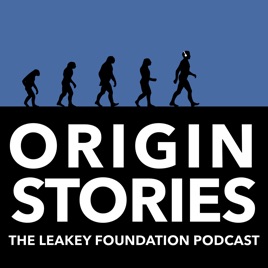
4.9
409
78
Origin Stories
The Leakey Foundation
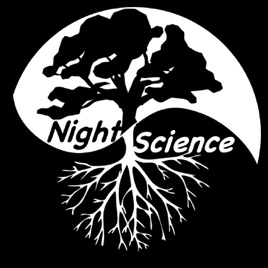
5
35
54
Night Science
Itai Yanai & Martin Lercher

4.8
57
581
Risky or Not?
Don Schaffner and Ben Chapman
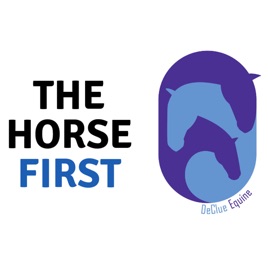
4.9
182
56
The Horse First: A Veterinary Sport Horse Podcast
Audrey DeClue, DVM
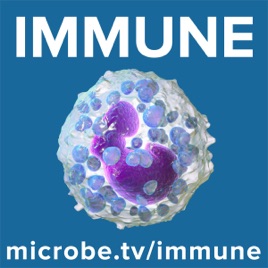
4.8
251
76
Immune
Vincent Racaniello

3.7
76
14
Science Will Win
Pfizer
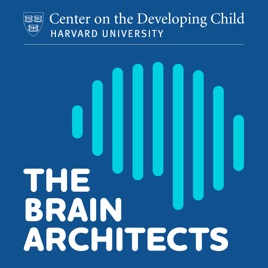
4.8
83
20
The Brain Architects
Center on the Developing Child at Harvard University
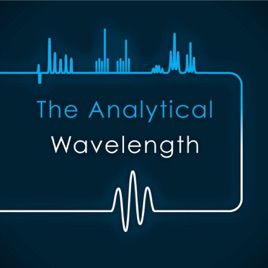
4
1
28
The Analytical Wavelength
ACD/Labs
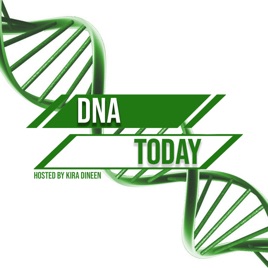
4.8
163
277
DNA Today: A Genetics Podcast
Kira Dineen
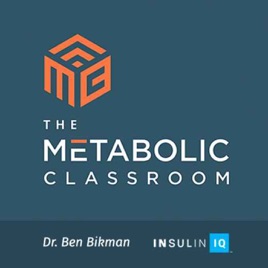
5
35
43
The Metabolic Classroom
Insulin IQ



